
Lakmoos states, “The time has come when companies will be able to conduct instant research on their users.” Because companies won’t be studying their users – but rather the AI personas representing those users. These personas live on the Lakmoos platform, and each persona is a generalized representative of one of the company’s target audience segments.
Personas can even be given names and visualized to make communication easier. The “character” of these personas is created on two levels. The startup creates the first generalized level, which collects data and interviews people to accumulate data about representatives of different segments of different target audiences. The company itself can create the second specific level, adding the results of its surveys of its target audience to the “character” of these persons.

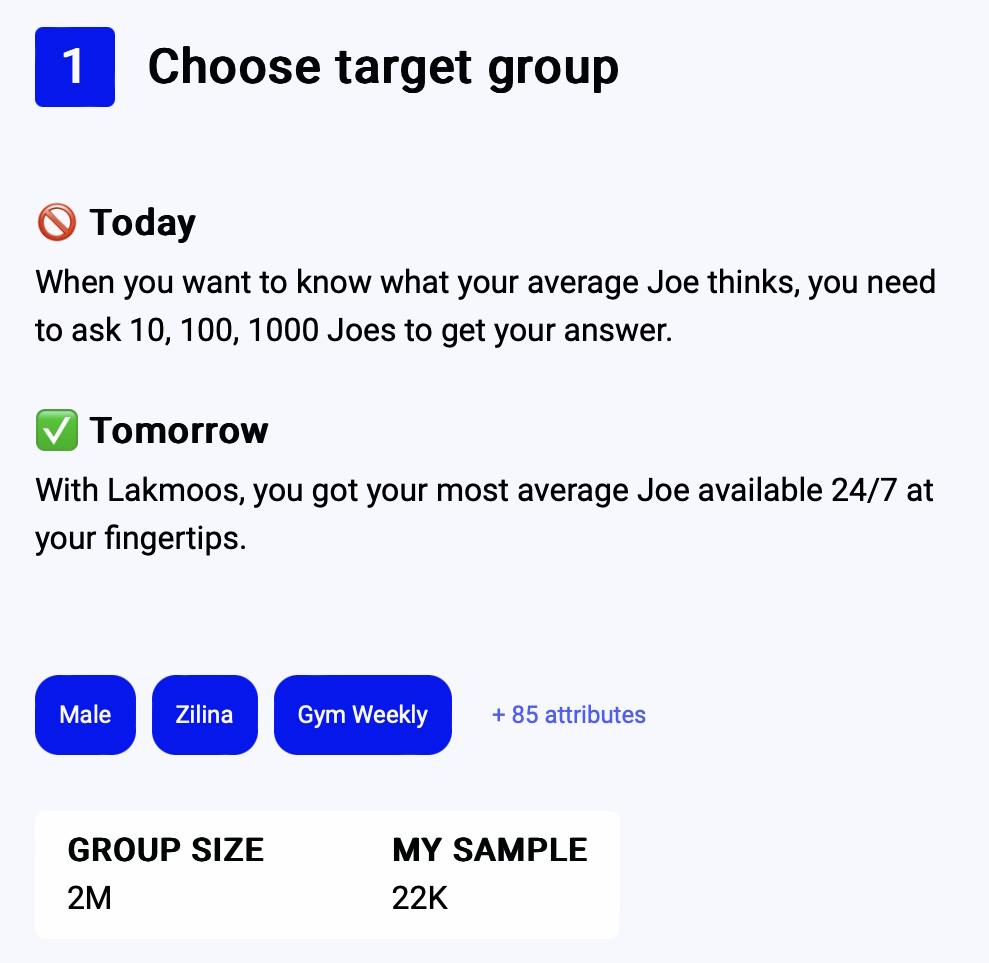
As mentioned above, the startup collects audience data from different sources. For example, they have generalized and anonymized data on the amount of money in bank accounts of people with different socio-demographic characteristics – so you can ask an AI persona the question, “How much money do you have in your account?” and it will answer you truthfully.
Thus, AI personas are also good because they can be asked questions like “Do you believe in God?” or “How afraid of risk are you?” and get statistically truthful answers. Answers to such questions help better understand the nature and habits of their target audience – so that they can develop new products and marketing hypotheses.
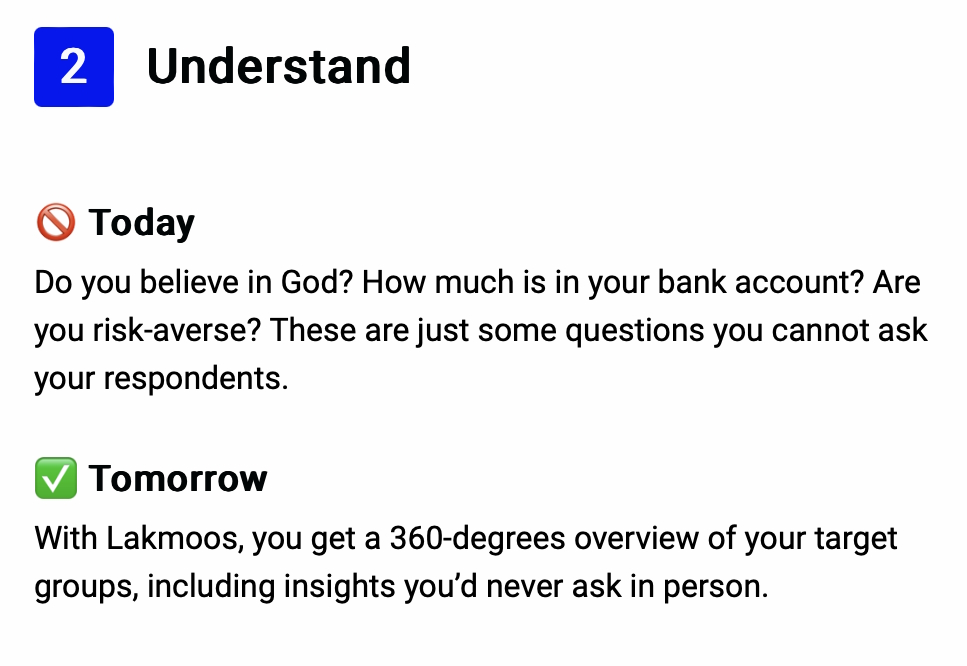
In addition to these questions, AI personas can be asked the usual questions companies ask their existing and potential users in conventional surveys or focus groups. Unlike regular humans, AI personas can be asked any number of questions at any frequency without spending time and money to gather more respondents for research.
The problem is that more research budgets are needed, even for huge companies. Startup surveys have shown that marketing departments of such companies believe that to conduct regular quality research before launching new products, their research budget should be increased by an average of 12 times!

The platform allows to get actual answers such as “No, I am not going to take a mortgage soon” and build a map of emotions arising from such an answer. For example, it may turn out that the lack of plans for a mortgage has little to do with optimism about current housing conditions – instead, it causes sadness that there is no possibility of making such plans. And these are very different reasons for giving the same answer to a question – and very different conclusions to draw from that.

The startup claims that the answers of the AI personas created on their platform are statistically the same as those of live people who are members of the same audience segment. A report from research company Ipsos confirms this.
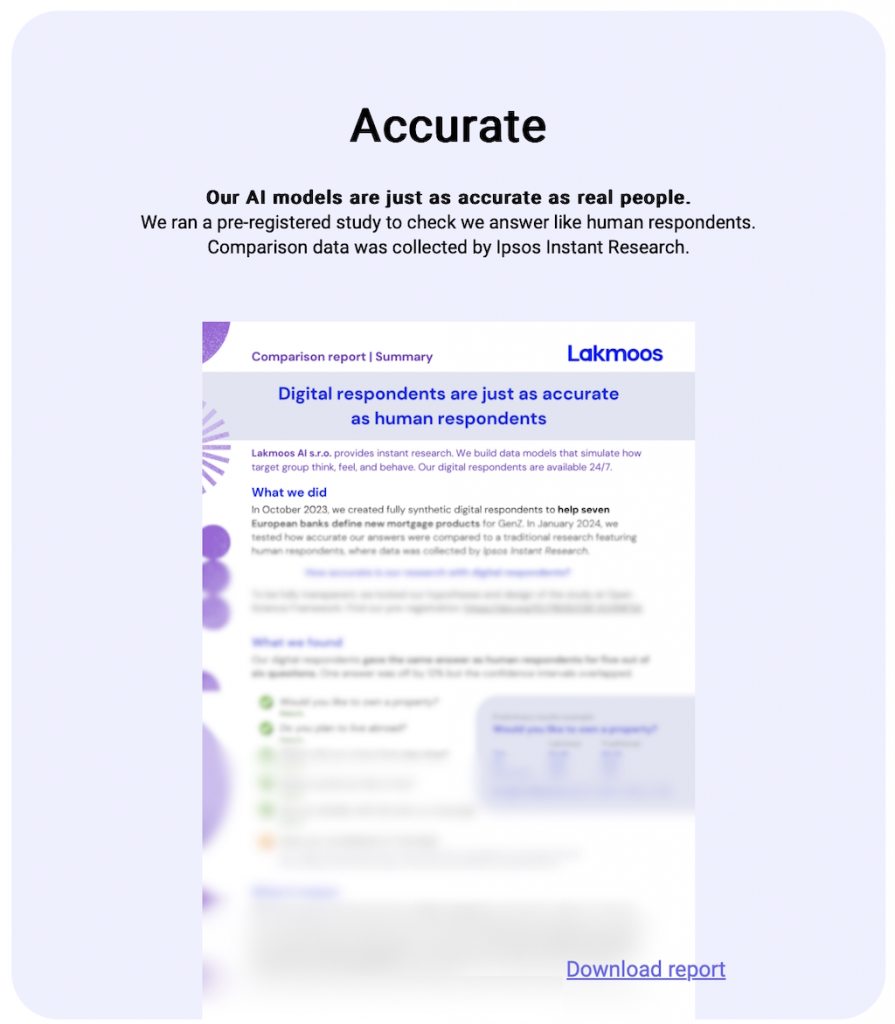
At the same time, preparation for conducting user research using traditional methods takes six months – including agreement on research objectives, budget, list of questions, identification of a contractor, and so on. During this time, the Lakmoos platform allows you to conduct a lot of research – and get ahead of the competition by launching a new feature or product based on the research results.
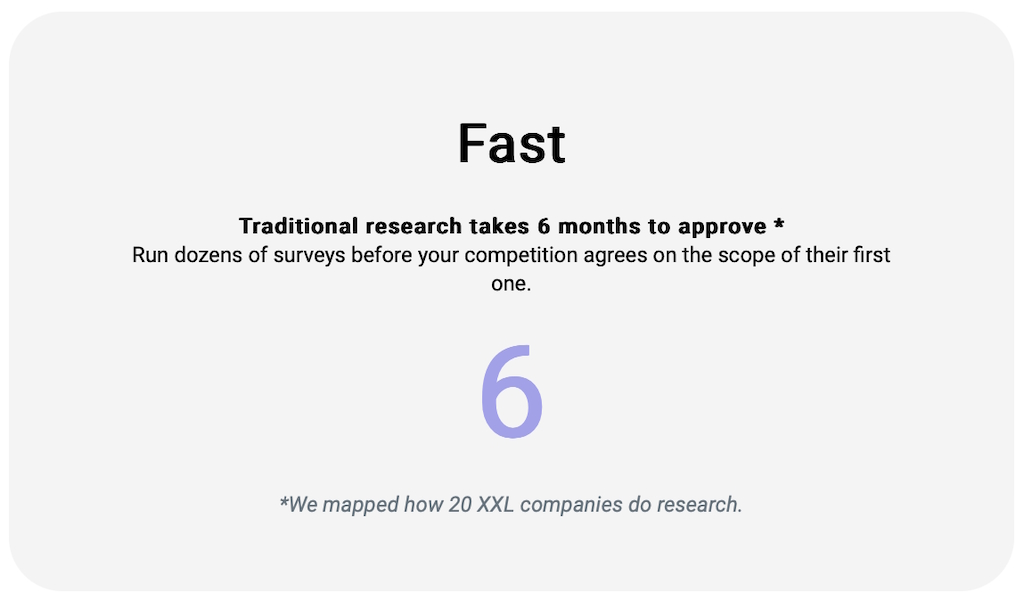
End-client companies pay a subscription fee to access the platform. The startup takes a month to create the first version of AI personas that matches the customer’s target audience; after that, updates and improvements to those personas will be made automatically as the startup collects and updates the dataset.
Another type of startup’s customers are marketing and research agencies, which can use the Lakmoos platform as a “white label” (with their branding) to conduct research for their clients. Lakmoos was founded in the Czech Republic last spring, and now the startup has raised its first 300 thousand euro investment.
What’s interesting

Rally raised $8.85 million in investment and made a CRM to make user research for companies’ products faster and cheaper, which reinforces the fact that companies are interested in doing this research and doing it faster and cheaper.
Today’s Lakmoos is solving the same problem – but in an unexpected way. They don’t automate the traditional process but instead offer a completely different approach made possible by the development of AI technologies. While this approach seems unexpected at first glance – it follows pretty logically from other examples.

Hyperbound uses a similar principle to offer B2B companies the opportunity to create AI personas that correspond to different representatives of the companies buying their products – a “gruff sales director” or a “polite marketing director.” Companies can train their salespeople using these AI personas. Hyperbound graduated from Y Combinator last year with this platform.
From here, it’s just one step toward creating AI personas representing the target audience for B2C companies – and Lakmoos has taken that step. I see a general trend towards creating AI personas that reflect individuals.
Where to go
This is the trend that is emerging now – the creation of AI chatbots, AI assistants, and AI persons with a distinct personality. This is precisely the general direction of possible movement. The options for applying this approach can be very different.
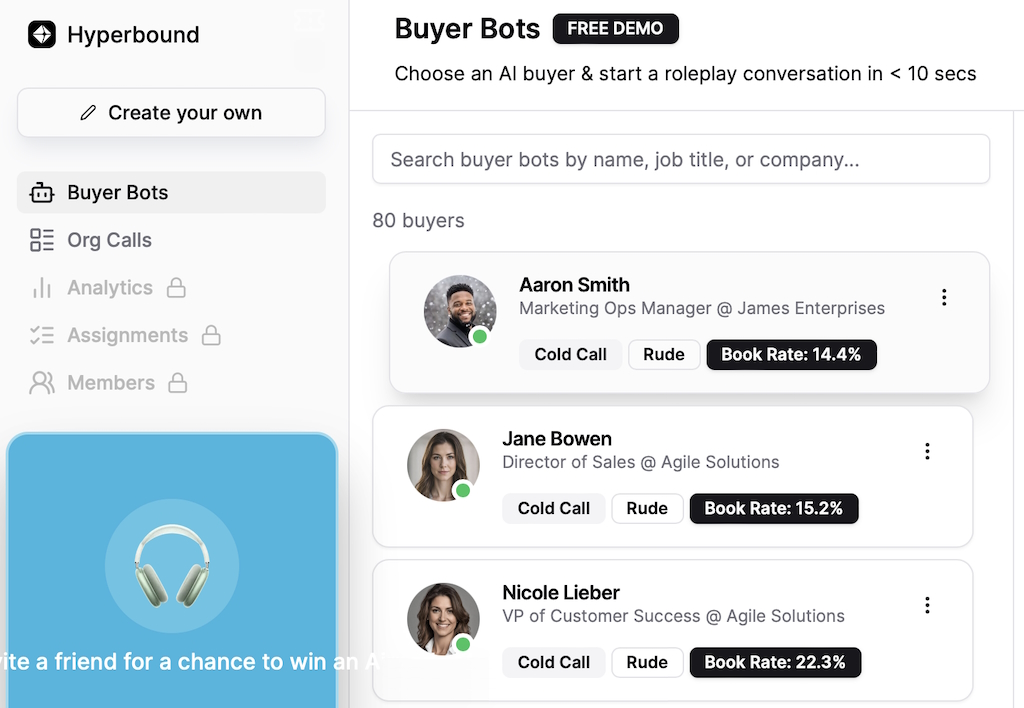
The Personal AI startup has made a platform on which you can create your own “digital twin.” According to the startup, this counterpart is supposed to answer messenger messages instead of you. But I think a more moneymaking application of the same technology is that teachers of online courses can use their doppelgangers to answer annoying and repetitive questions from their students. This startup raised $13.7 million in investment.
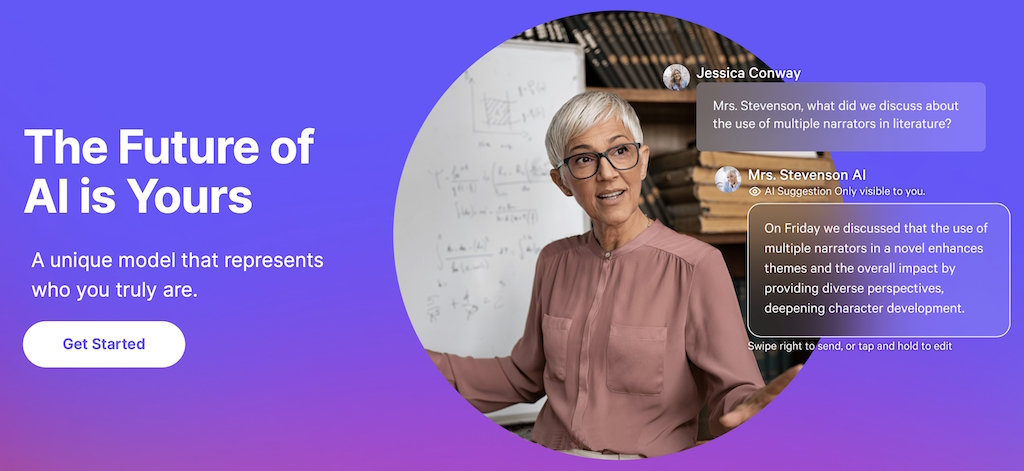
The startup Chirper has created an analog of Twitter – but where people cannot live to communicate with each other, only the AI personas they create. To create such a persona, a user only needs to briefly describe its history and essential character traits – after which the platform itself will create an extended profile of this persona and endow it with the ability to write its posts and comment on others’ posts. It looks like a toy without any precise practical application, but this startup has already raised 750 thousand dollars in investments.

Recently, there have been quite a few startups creating digital employees. For example Artisan AI, Y Combinator, and 11x, which has raised 2 million dollars in investment. These startups are creating digital employees, among other things, who, by the nature of their work, have to communicate with other people – salespeople, recruiters, and support staff. It would be exciting and useful to give them different personalities, too – because different people must communicate differently to get the right results.

When hiring such employees, paying attention to their personality traits is common – so why not pay attention to the same when “hiring” AI employees?
In what areas and for what purposes does it make sense to create AI chatbots, AI assistants, and AI personas with personality? What will this individuality help? What data can be used to create such individuality?